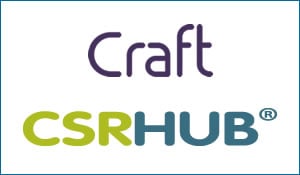By Karen Dam
This year’s first of the Quarterly Analyst Calls (QAC) – which is also the first one to be broadcasted live – continues the QAC’s goal to establish communication between businesses and the investment community on the issues of corporate environmental, social and governance (ESG) issues and socially responsible investment (SRI).
Independent analyst firms identified key ESG reporting trends from the investor’s point of view:
- An 18 percent increase in the number of companies conducting materiality analyses, plus a 64 percent increase in the number of companies applying their materiality analysis in their sustainability reports.
- A 30 percent increase in the number of companies applying CSR into their 10-Ks.
- An increase in the number of proxy votes in favor of ESG strategies (such as voting in favor of disclosing political contributions).
- A greater evolution in social performance metrics.
- Companies are moving away from the “low hanging fruit” towards the innovation-side through R&D investing.
- A recognition of employees as under-utilized assets. In many cases companies have dampened their employees’ desire or drive to be sustainable and work in an environmentally responsible workplace.
At CSRHub, we are also keeping close track of reporting trends, thanks in part to our partnerships with organizations such as the Carbon Disclosure Project, the Governance and Accountability Institute, and GRI (CSRHub is an organizational stakeholder of GRI). Through our blog posts and ratings, CSRHub provides the data and the information that is foundational in establishing communication between the investment community and businesses and even consumers. Improving available information makes this dialogue more informed and more able to address and change the issues surrounding CSR, ESG, and SRI.
Karen Dam is a Data Analyst at CSRHub. Karen completed her Bachelor of Science in Environmental Sciences at the University of Guelph, and a Master of Environmental Science at the University of Toronto Scarborough. She has enthusiastically filled research roles in the public sector. Karen has experiences in project management and research, including data collection and data management, analysis and synthesis. Karen actively volunteers with NGOs, including conservation authorities, to contribute to ecosystem protection, advocate environmental sustainability and of science literacy. Her hobbies include cycling, reading, and painting.


